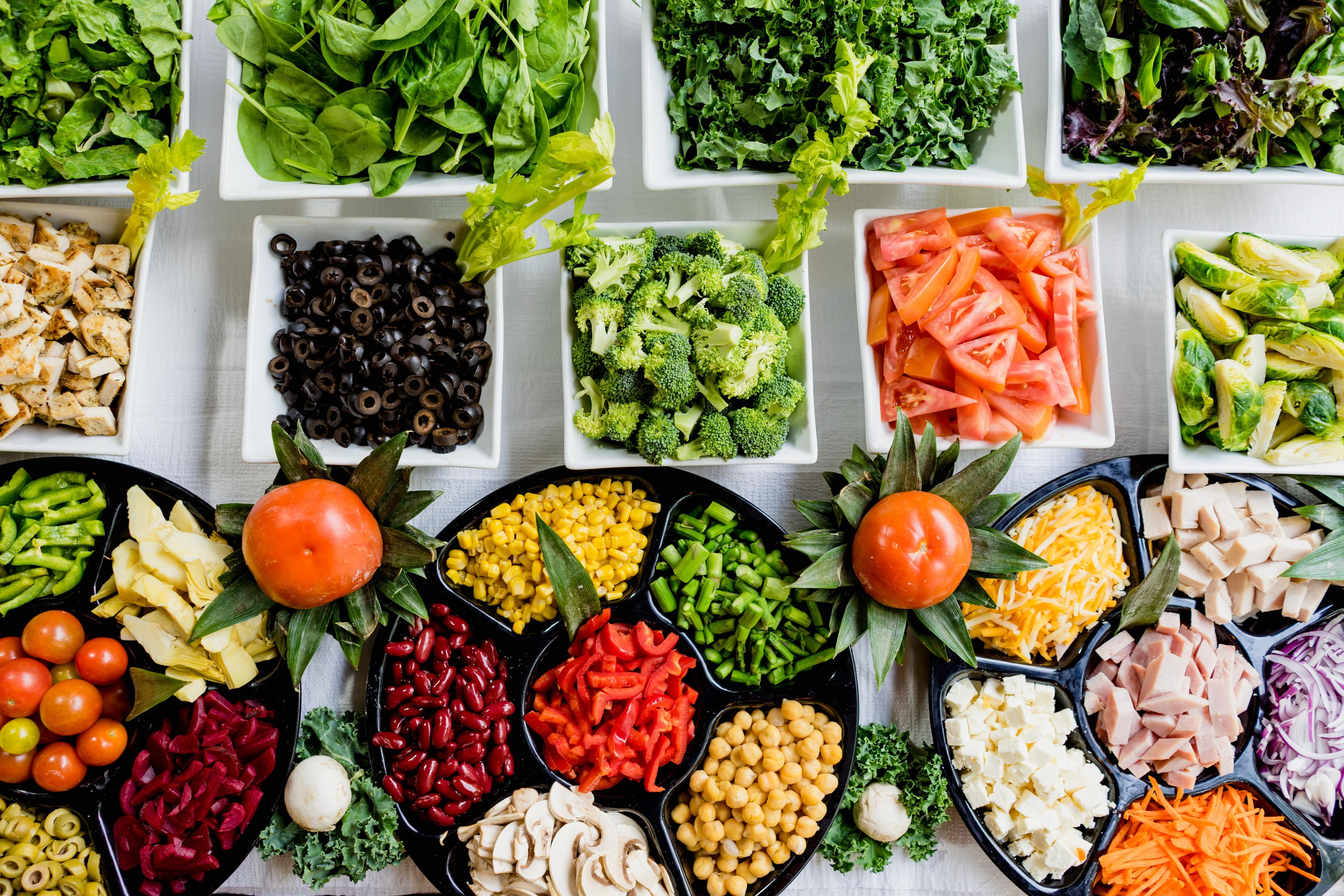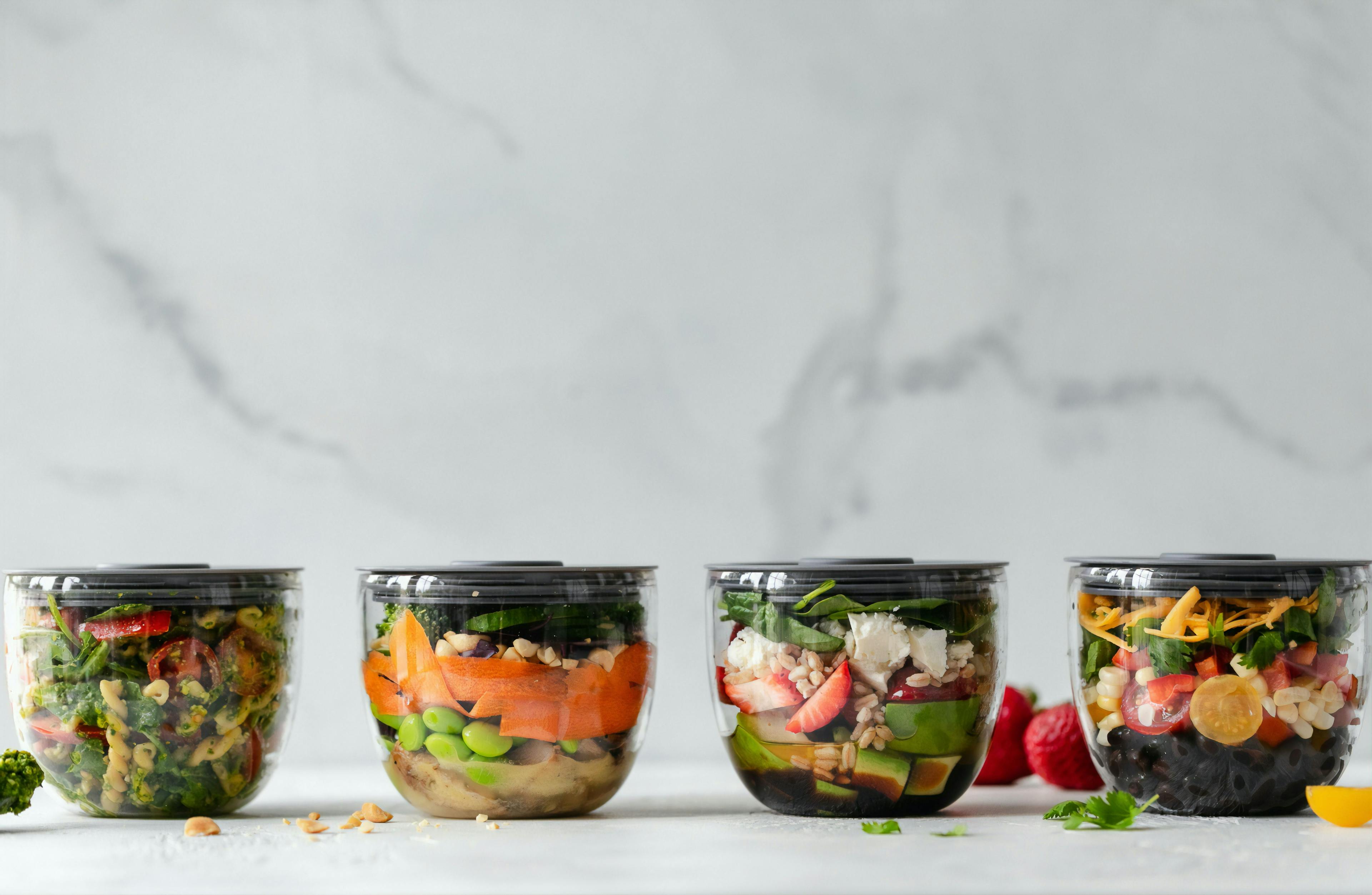Getting in shape is not always straightforward. People have turned to diets or dubious weight loss plans because of the hectic pace of modern life.
In recent years, meal replacements have grown in popularity as more people look for quick and convenient ways to meet their nutritional needs. These items are a full-fledged replacement for a typical meal, offering all the essential nutrients in a single serving.
In this blog, we will discuss some of the popular meal replacement options available for you.
Talking About Meal Replacement
A food item known as a meal replacement is created to offer all the essential vitamins, minerals, and nutrients that one would get from a balanced meal.
Typically, meal replacements come in the form of shakes, bars, or powders that can be dissolved in liquids like water or other drinks. People who are busy and don’t have time to prepare a full meal or those trying to control their calorie intake frequently use them as a convenient and time-saving option.
Advantages
- Provide a balanced diet of essential nutrients, vitamins, and minerals
- Help with weight management
- Less expensive than fast food
- It may provide an energy boost
- It may offer more fiber than most meals
- It can be tailored to fit special diets such as vegetarian and vegan diets
Disadvantages
- Lacks the natural vitamins, minerals, and proteins required to support the body and mind, making it less nutrient-dense than balanced, healthy meals
- Can’t offer your body all the antioxidants it needs
- The long-term sustainability of this diet is in doubt. Instead of using replacement meals, the most effective diets are balanced with a variety of natural whole foods
- Few replacement meal plans accommodate special dietary requirements, such as coeliac disease.
- You run the risk of gaining weight once you stop the meal replacement plan.
Meal Replacement Diet: Does It Work?
The effectiveness of meal replacement diets for weight loss varies from person to person. An eating plan that substitutes shakes or bars for one or more meals per day is known as a meal replacement diet.
People may be able to lower their daily caloric intake and lose weight with this kind of diet. Meal replacement programs may not work for everyone, and if the diet is not properly balanced concerning other food groups, people may experience health risks.
Furthermore, a meal replacement diet may not result in long-term weight loss. A healthcare professional should be consulted before beginning a meal replacement plan.
Meal Replacements Options Available

Options for meal replacements are becoming widespread in today’s world. Products for meal replacements are available online, in supermarkets, and in health food stores.
Typical meal options include the following:
-
Meal Replacement Bars:
Meal replacement bars are convenient and easy-to-eat snack bars designed to provide a balanced meal replacement in place of traditional meals. Many bars are fortified with essential vitamins and minerals and provide a range of flavors and textures to suit individual tastes.
Advantages
- Easy way to get a nutritious meal on the go
- A balanced combination of vitamins and minerals
- Delicious flavors and textures
- Affordable
Disadvantages
- Not as filling as a complete meal
- Contain added sugar, preservatives, and artificial ingredients
- Higher in calories than a regular meal
- Not suitable for those with allergies or any dietary restrictions
-
Meal Replacements Shakes
Meal replacement shakes are a type of beverage that is intended to replace a traditional meal. They are typically made with a combination of protein, carbohydrates, fats, vitamins, minerals, and other essential nutrients.
Advantages:
- Provide a convenient and easy way to get nutrition from a meal without cooking it.
- Portable and easy to store.
- Help in controlling and managing calorie intake.
- Provide a convenient source of nutrition when time is limited.
Disadvantages:
- It contains added sugars, artificial sweeteners, and other additives
- Need more variety and the pleasure of preparing and eating authentic meals
- It does not provide enough fiber
- Expensive
-
Plant-Based Meal Replacement
A complete and balanced meal in a convenient, ready-to-eat form is what is referred to as a plant-based meal replacement. A combination of plant proteins, carbohydrates, fats, vitamins, and minerals can be found in these products. These also offer a meal that is calorie-restrained and nutritionally complete.
Plant-based meal replacements like Kachava and Huel offer a complete and balanced meal in a handy, ready-to-eat package. These products contain a variety of plant proteins, carbs, fats, vitamins, and minerals, providing a calorie-restricted and nutritionally balanced meal.
Read more: Kachava vs Huel
Both Kachava and Huel come in a number of formats, such as shakes, bars, and pouches, making them quick, satisfying, and inexpensive alternatives to meet daily nutritional demands. These items often contain oats, tofu, beans, lentils, nuts, seeds, quinoa, whole grain bread, fruits and vegetables, nutritional yeast, and plant-based milk and yoghurt.
The simplicity and ease of preparation of Kachava and Huel, as well as their vegan-friendliness, low calorie content, affordability, portability, and stable shelf life, are all advantages.
A plant-based meal replacement can be used in place of a regular meal and come in a variety of forms, including shakes, bars, and pouches. They are quick, filling, and reasonably priced ways to meet daily dietary needs.
Foods Included
- Oats
- Tofu
- Beans
- Lentils
- Nuts
- Seeds
- Quinoa
- Whole grain bread
- Fruits
- Vegetables
- Nutritional yeast
- Plant-based milk and yogurt
Advantages
- Convenient and easy to prepare
- Nutritionally complete
- Vegan-friendly
- Low calorie
- Affordable
- Portable
- Stable shelf life
Disadvantages
- Contains added sugar or artificial ingredients
- Low in vitamins and minerals
- Some formulations may have a high sodium content
- Not suitable for those with allergies or any other dietary restrictions
-
Low-Carb Meal Replacement
A food or beverage intended to replace a meal and is low in carbohydrates while still providing a balanced and nutritious meal is known as a low-carb meal replacement. People who are on a low-carb diet or trying to control their blood sugar levels frequently use these products.
Foods Included:
- Protein powders
- Nuts and seeds
- Coconut or almond milk
- Avocado
- Low-carb vegetables
- Healthy fats, such as olive oil, butter, or coconut oil
- Egg whites
- Greek yogurt
- Protein bars
Advantages
- Reduces time and effort required to prepare meals
- Help to reduce overall calorie and carbohydrate intake
- Convenient for those following a low-carbohydrate diet
- Help to reduce cravings
- Promotes weight loss
Disadvantage
- Limited variety of flavors and products are available
- Expensive compared to traditional meals
- Not all meal replacements are nutritionally balanced, so reading labels carefully is essential
- Not suitable for those with food allergies or intolerances.
-
Gluten-Free Meal Replacement
A gluten-free meal replacement is a meal replacement that does not contain gluten. Gluten is a protein found in grains such as wheat, barley, and rye that can cause health issues in people who have gluten sensitivity, celiac disease, or a wheat allergy.
Gluten-free meal replacements can be a convenient option for people who avoid gluten for medical or personal reasons. These products are made with alternative carbohydrate and protein sources. They may also include additional ingredients that provide essential nutrients such as vitamins and minerals.
Foods Included
- Tofu
- Quinoa
- Buckwheat
- Millet
- Rice
- Nut and seed butter
- Oats labeled as gluten-free
- Legumes
- Soy, almond, and other non-dairy milk
- Vegetables
- Fruit
- Nuts and seeds
- Gluten-free grains, such as amaranth, teff, and sorghum
Advantages
- A great choice for individuals who are sensitive to gluten or have celiac disease
- Many gluten-free meal replacement options are fortified with vitamins and minerals
- Some brands offer high-protein options for athletes
- Gluten-free meal replacements can help with weight management as they are low in calories
- They are often convenient and quick to prepare.
Disadvantages
- Gluten-free meal replacements can be more expensive than regular meal replacements.
- They don’t have as many flavors as regular meal replacements.
- Some gluten-free meal replacements are high in sugar and sodium.
- Contains artificial sweeteners, preservatives, or other additives.
- Gluten-free meal replacements could fail to offer adequate nutrition for those attempting to gain muscle mass.
Final Words
Meal replacements can be a quick and easy way to get the nutrients you need when you’re on the go. However, as with any diet, it is critical to conduct research and understand the benefits and drawbacks of meal replacements before committing to them.
It is also critical to consult with a healthcare professional before embarking on a meal replacement plan to ensure that any health risks are addressed.


Comments are closed.